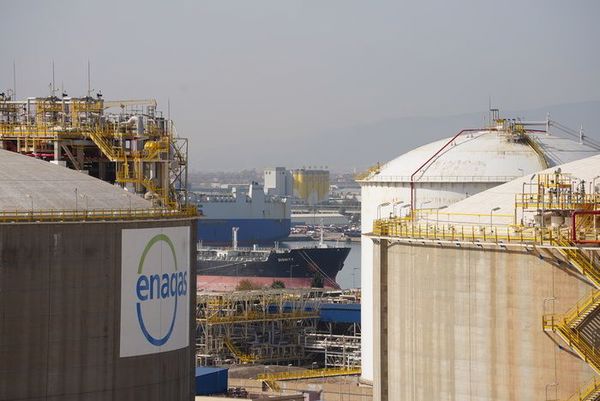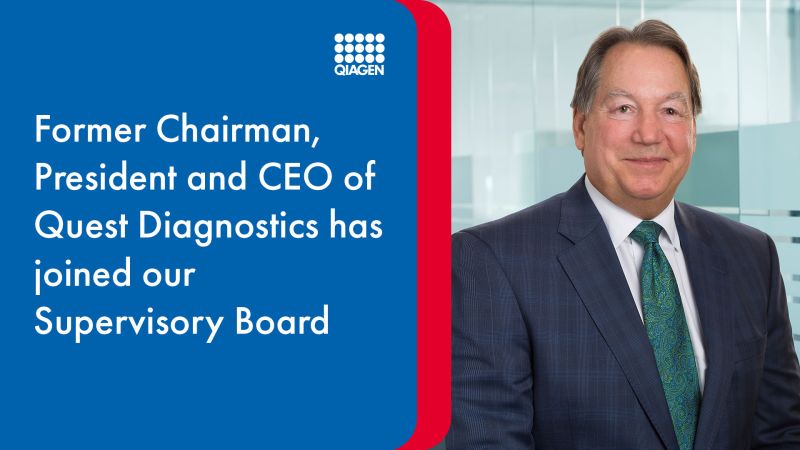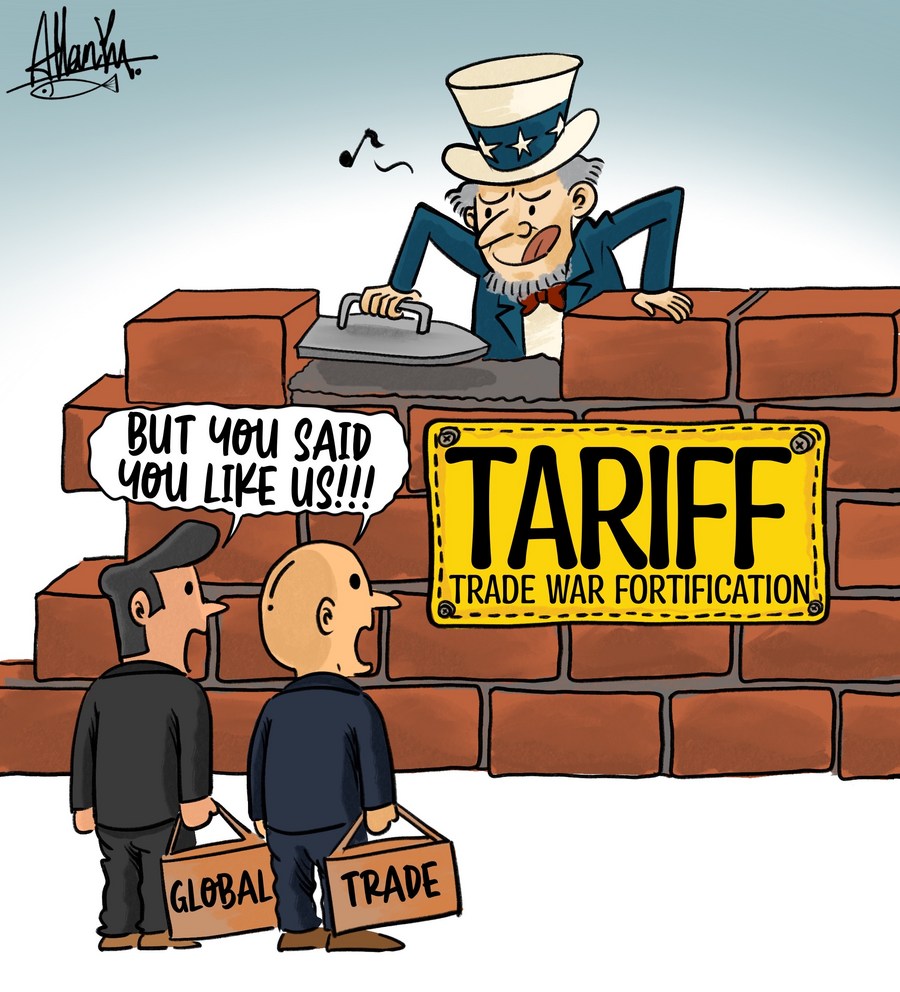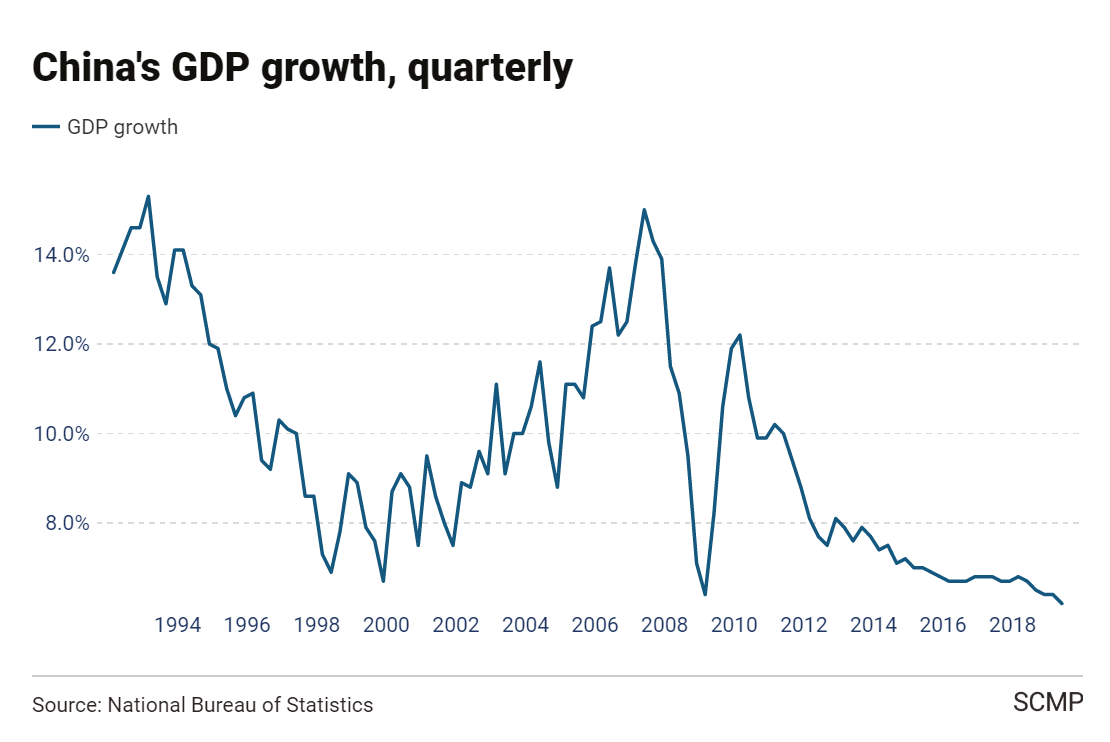Sustainable Cruise Shipping: Shell's LNG Bunkering In Barcelona

Table of Contents
The Environmental Impact of Cruise Ships and the Need for Sustainable Solutions
Traditional cruise ships primarily rely on heavy fuel oil (HFO), a highly polluting fuel source. This reliance has significant environmental consequences, contributing substantially to air and water pollution and greenhouse gas emissions. The industry's environmental footprint is undeniable, demanding urgent action to mitigate its impact. The negative consequences include:
- Air Pollution: Emissions of sulfur oxides (SOx) and nitrogen oxides (NOx) contribute to acid rain and respiratory problems. Particulate matter further exacerbates air quality issues in coastal regions.
- Greenhouse Gas Emissions: HFO is a significant contributor to greenhouse gas emissions, accelerating climate change and its associated effects.
- Water Pollution: Wastewater discharge and hull fouling release harmful substances into the marine environment, damaging delicate ecosystems.
- Noise Pollution: The constant noise from ship engines and other operations disrupts marine life, impacting their behavior and communication.
The need for cleaner alternatives is paramount to lessen the environmental burden of the cruise industry and pave the way for truly sustainable cruise shipping.
Liquefied Natural Gas (LNG) as a Transition Fuel for Sustainable Cruise Shipping
Liquefied Natural Gas (LNG), a cleaner-burning fuel than HFO, is emerging as a transitional solution for sustainable cruise shipping. LNG is natural gas cooled to a liquid state, significantly reducing its volume and making it easier to transport and store. While not a perfect solution, it offers considerable environmental advantages:
- Reduced Sulfur Oxide Emissions: LNG combustion results in nearly zero sulfur oxide emissions, significantly improving air quality.
- Reduced Nitrogen Oxide Emissions: NOx emissions are significantly lower compared to HFO.
- Lower Particulate Matter Emissions: The particulate matter produced during LNG combustion is considerably less than that from HFO, leading to cleaner air.
- Reduced Greenhouse Gas Emissions: Although LNG still produces greenhouse gas emissions (primarily methane), they are lower than those from HFO, representing a step towards decarbonization.
It is crucial to remember that LNG is a transitional fuel. The ultimate goal is complete decarbonization of the shipping industry, and ongoing research and development are focused on alternative fuels.
Shell's LNG Bunkering Operations in Barcelona: A Case Study
Shell's LNG bunkering infrastructure in Barcelona is a key example of the progress being made in sustainable cruise shipping. The facility boasts significant capacity, allowing for the efficient refueling of cruise ships with LNG. The bunkering process itself is carefully managed to ensure safety and efficiency. This involves specialized equipment and procedures for the transfer of LNG from storage tanks to the ship's fuel tanks.
- Location and Capacity: The facility is strategically located in the Port of Barcelona, offering easy access for cruise ships. Its capacity is designed to handle a substantial number of vessels.
- Technology: Advanced technology is employed to ensure the safe and efficient transfer of LNG, minimizing the risk of leaks or spills.
- Partnerships: Shell collaborates closely with major cruise lines and the Port of Barcelona authorities to facilitate the seamless adoption of LNG bunkering.
- Number of Ships: A growing number of cruise ships are now regularly using the Barcelona facility, demonstrating the increasing acceptance and feasibility of LNG as a fuel.
Challenges and Future Outlook for LNG Bunkering and Sustainable Cruise Shipping
Despite the progress, several challenges remain in achieving widespread adoption of LNG and ultimately achieving truly sustainable cruise shipping.
- Cost of LNG Infrastructure: Developing the necessary infrastructure for LNG bunkering is expensive and requires significant investment.
- Geographic Limitations: The availability of LNG bunkering facilities is currently limited, hindering wider adoption.
- Need for Further Research: Continued research and development are essential to explore and implement alternative fuels, such as methanol, hydrogen, and ammonia, for truly emission-free cruising.
- Policy and Regulation: Supportive policy and regulatory frameworks are crucial to incentivize investment in sustainable cruise shipping technologies and accelerate the transition to cleaner fuels.
The Future of Sustainable Cruise Shipping
Shell's LNG bunkering in Barcelona is a significant step forward in the pursuit of sustainable cruise shipping. While LNG provides a crucial transitional fuel, reducing emissions compared to HFO, the ultimate goal is emission-free cruising. The challenges are considerable, demanding substantial investment in infrastructure, research into alternative fuels, and supportive policy frameworks. However, the shift towards sustainable cruise shipping is underway, and the future of the industry hinges on continued innovation and collaboration. We must encourage further investment and innovation in sustainable cruise shipping technologies, including the expansion of LNG bunkering infrastructure and the development of alternative fuels to achieve truly emission-free cruising. Let's champion the cause of sustainable cruise shipping for a cleaner, healthier ocean and planet.

Featured Posts
-
 O Impacto Da Space X Uma Nova Cidade No Texas Gracas A Musk
May 29, 2025
O Impacto Da Space X Uma Nova Cidade No Texas Gracas A Musk
May 29, 2025 -
 Covid 19 E Long Covid L Importanza Della Vaccinazione Secondo I Dati Ecdc
May 29, 2025
Covid 19 E Long Covid L Importanza Della Vaccinazione Secondo I Dati Ecdc
May 29, 2025 -
 Qiagen Announces Positive Preliminary Q1 2025 Financial Results
May 29, 2025
Qiagen Announces Positive Preliminary Q1 2025 Financial Results
May 29, 2025 -
 I Nomiki Diamaxi Tramp Ipa Analyontas Tis Ekselikseis
May 29, 2025
I Nomiki Diamaxi Tramp Ipa Analyontas Tis Ekselikseis
May 29, 2025 -
 Russia Rejects Trumps Emotional Reaction To Putin
May 29, 2025
Russia Rejects Trumps Emotional Reaction To Putin
May 29, 2025
Latest Posts
-
 Monte Carlo Final How Alcaraz Won With Musetti Injured
May 30, 2025
Monte Carlo Final How Alcaraz Won With Musetti Injured
May 30, 2025 -
 Analyzing The Economic Impact Of Trumps Trade War On Canada 8 Crucial Indicators
May 30, 2025
Analyzing The Economic Impact Of Trumps Trade War On Canada 8 Crucial Indicators
May 30, 2025 -
 Monte Carlo Masters Alcarazs Triumphant Return From Behind
May 30, 2025
Monte Carlo Masters Alcarazs Triumphant Return From Behind
May 30, 2025 -
 Alcarazs Stunning Monte Carlo Victory From Behind To Champion
May 30, 2025
Alcarazs Stunning Monte Carlo Victory From Behind To Champion
May 30, 2025 -
 How Trumps Trade War Is Already Harming The Canadian Economy 8 Data Points
May 30, 2025
How Trumps Trade War Is Already Harming The Canadian Economy 8 Data Points
May 30, 2025
